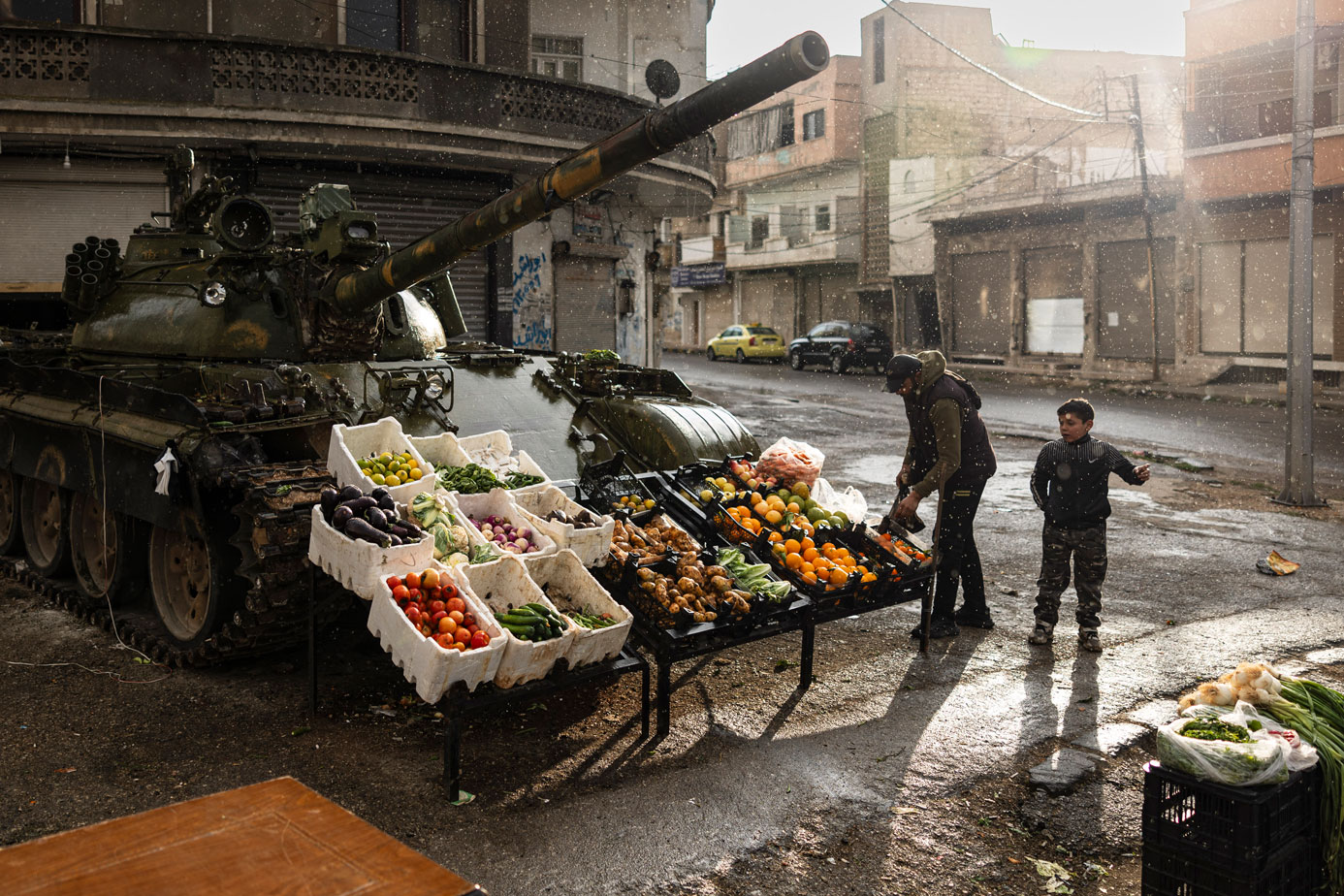Hosted by Lydia Wilson
Featuring Ammar Azzouz and Wendy Pearlman
Produced by Finbar Anderson
Listen to and follow The Lede
Apple Podcasts | Spotify | Podbean
“What does it mean to lose a home?” Ammar Azzouz, author of “Domicide: Architecture, War and the Destruction of Home in Syria,” asks New Lines’ Lydia Wilson on The Lede. “We live in a time where we have a sea of images and a flood of footage of destruction everywhere from Ukraine and Sudan to Iraq and Palestine, and of course in Syria, and somehow we continue our lives. But in every image of destruction, it’s about the livelihoods and the lives and the stories of the people who have survived these massacres and the horrors of war.”
For Wendy Pearlman, the choice to focus on the concept of “home” in her book “The Home I Worked To Make: Voices From the New Syrian Diaspora” helped make her various subjects’ stories relevant to all of her readers. “ Home is something that touches every human life. There are not necessarily all that many concepts that you can ask literally anyone, and the question should resonate in some way,” she says. “I think the question of what is home to you, or where is home, is something that every human being can relate to.”
“The question of what is home to you, or where is home, is something that every human being can relate to.”

Nevertheless, she says, home can mean so many things to different people. “For some, home is a place and they might relate to that place as a family, as their hometown, as their nation, as their own house, or room, or some physical, material, geographical, locatable space, but home is also a feeling, and then what kind of feeling is it?” says Pearlman.
The recent political upheaval in Syria has completely changed Syrians’ relationship to their homeland, says Azzouz. “This sense of being exiled has long been the case for many Syrians, before the revolution started and throughout the years of revolution, because they felt that this place is not for them,” he says. “They felt that they have no voice, they have no agency. And now, suddenly, after Dec. 8, they feel they can reclaim this voice and agency and home.”
Former Syrian President Bashar Al-Assad used Syrians’ homes for his own political ends, adds Azzouz. “He used reconstruction as a weapon as well. He started issuing new urban plans and laws to say that these neighborhoods are ‘informal’ and completely razing them to the ground. That was mainly for people who opposed the government and who were sympathizers with the revolution.”
Pearlman says of the interviewees in her book, “If I were to go back to each of these people now and say, ‘What is home now?’ I imagine their thinking has changed and their feeling has changed,” she suggests. “It was Assad’s Syria, not Syrians’ Syria. Now there is an opening of possibly going back, and that has to change what home can mean.”


